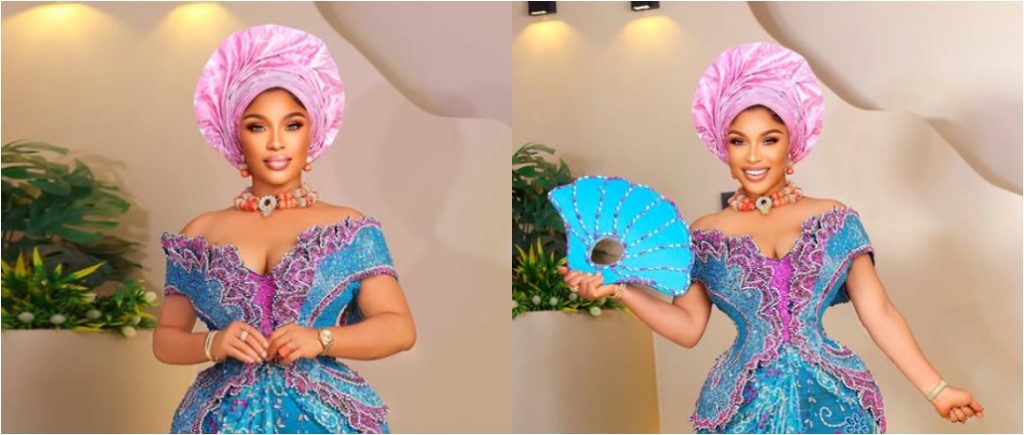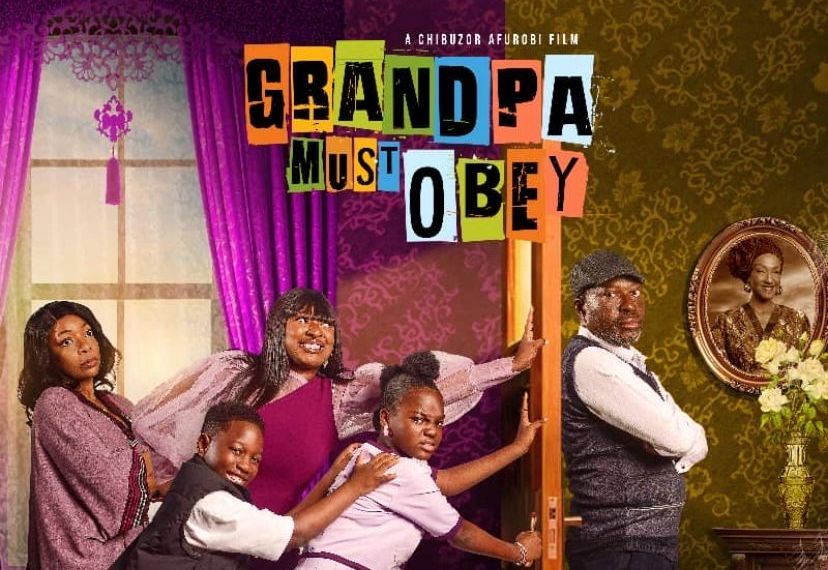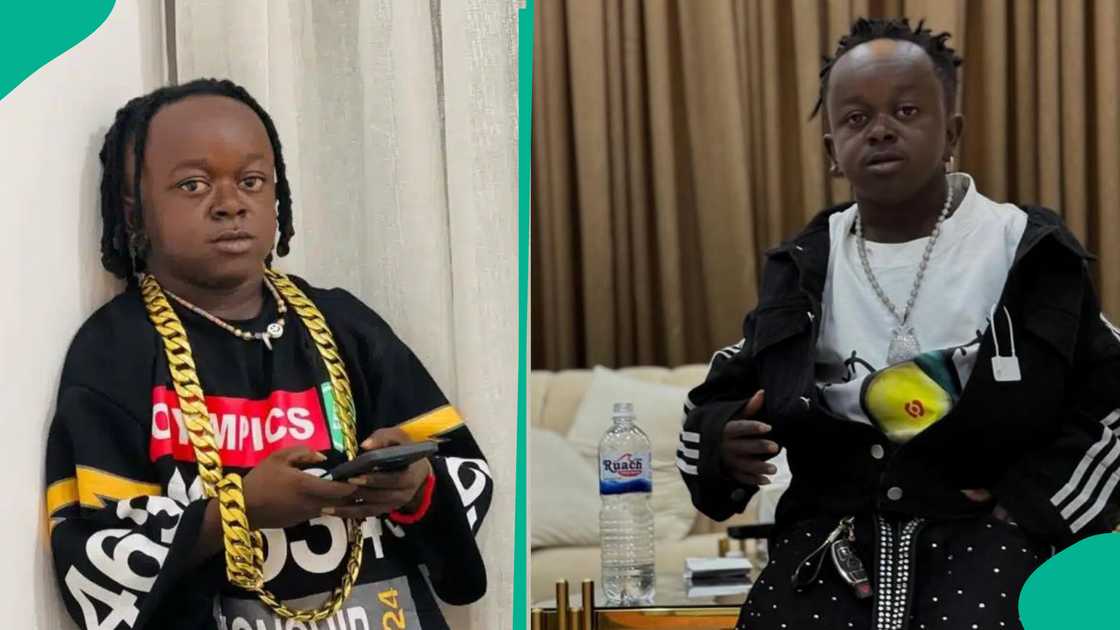Nigerian actress and politician Tonto Dikeh has sparked fresh conversation about friendship and career choices after opening up about her short-lived foray into music. The celebrity, who has consistently found herself in the headlines for a variety of reasons—both in acting and public life—shared a candid reflection on how negative influences from close friends contributed to her musical ambitions not taking off.
Taking to her Instagram account, the 40-year-old entertainer reminisced about her time in the music industry while singing along to Don Moen’s iconic gospel anthem, “God is Good.” Dikeh, known for her dynamism in Nollywood, took her fans down memory lane, recalling the period around 2013 when she bravely ventured into music, releasing tracks like “Hi” and “Crazically Fit.”
In her post, Tonto Dikeh did not shy away from admitting that her brief music career is a bitter reminder of how much the company she kept at the time influenced her decisions. “Watching this video reminds me of the time I had the worst kind of friends who pushed me to release the album,” she reportedly stated. Her remarks highlight a theme that resonates deeply in Nigerian society—how peer pressure and toxic circles can impact life trajectories, especially in creative industries where competition and public scrutiny are high.
“If I could sing ehn, una for don dey sick of me,” Tonto joked, implying that with more musical talent, her presence would have become unmissable in the industry. She went on to tease about her imagined dominance, referencing revered personalities: “Like you don’t even understand, likeeeeeeeeeeee who is Tiwa? Who is Whitney, who is Cece Winans? Taaaaahhhhhhh.” This lighthearted banter references big names such as Tiwa Savage (Nigerian Afrobeat queen), Whitney Houston (legendary global vocalist), and CeCe Winans (renowned American gospel singer). The subtle subtext mirrored sentiments found across West African households, where young people are often encouraged to measure themselves against the very best, sometimes to the detriment of their own unique journeys.
Tonto also made an emotional allusion to the difficulty of the period, cautioning, “Look, sneeze/sniper and co, your bedroom is being reserved in hell. Moral of this lesson—choose your friends wisely, more importantly, be wise.” Her message, while coated with humor, brings to the fore the serious reality of unhealthy companionships, especially in bustling cities like Lagos and Accra, where the pressure to “belong” can sway one into making regrettable choices.
Reflections from the Entertainment Industry
Insiders in the Nigerian entertainment scene have noted that Dikeh’s story is far from unique. According to Lagos-based entertainment analyst Chinedu Okeke, “Many young creatives feel compelled to experiment because their inner circle is either unconditionally encouraging, sometimes to a fault, or overly critical, preventing growth altogether.” This phenomenon is even more pronounced in multi-talented individuals, who often find themselves stretched across industries such as film, music, and philanthropy.
Several well-known figures in Africa’s creative space have also grappled with switching careers under pressure from friends and industry expectations. For instance, Ghanaian actress Juliet Ibrahim once revealed in an interview how feedback from her inner circle made her hesitate before releasing her first music single. Such testimonies add local relevance, as creative pursuits are widely respected across West Africa, and career moves are the subject of open debate among friends, family, and fans.
What the Data Tells Us
Industry statistics further shed light on why crossing over from acting to music or vice versa is such a daunting challenge in the region. According to a 2023 report from Statista, the Nigerian music market is one of Africa’s fastest growing, with Afrobeats dominating domestic listening preferences. However, the barrier to entry remains high, and the audience is known to be discerning, often critical of non-musicians attempting to make headway without the requisite vocal prowess or industry know-how.
Global comparisons show similar patterns. International stars such as Jennifer Lopez and Will Smith, who successfully combined music and acting, did so with robust support systems and deep training in both fields. The West African experience, however, features unique hurdles—ranging from constrained resources to cut-throat industry politics and the influence of peer groups.
Navigating Peer Influence in Nigeria’s Creative Sectors
For many young West Africans hoping to break into entertainment, Tonto Dikeh’s story is a cautionary tale. It is not uncommon for friends and associates to serve as primary advisors, especially when formal mentorship is lacking. This reliance, while sometimes beneficial, can just as easily derail promising talents. Dr. Ifeoma Nwosu, a psychologist and career coach based in Abuja, observes, “Strong-willed friends may push you into projects you’re not passionate about, or worse, not suited for. The key is discernment.”
- Status pressure—desire to match or surpass popular figures (such as Nigerian superstars or international icons).
- Echo chambers—where friends only affirm decisions rather than offer constructive criticism.
- Fear of missing out (FOMO)—leading to rushed projects or ventures into unfamiliar territory.
This dynamic is magnified for celebrities whose lives are often played out on social media. According to Dr. Nwosu, mental health concerns can arise if disappointments are met with ridicule or online trolling, which frequently occurs on platforms popular in Nigeria and Ghana.
The Local and Global Impact
As the West African entertainment industry grows in global prominence, stories like Tonto Dikeh’s are increasingly relevant. They mirror the broader conversation about healthy support systems for creatives and the challenges of diversification for public figures. In Nigeria, where social mobility through entertainment is real and significant, the lessons are profound: success depends not just on talent or ambition, but on wise choices and trusted advisors.
The discourses sparked by Dikeh’s revelations have prompted reactions from fans across Nigeria, Ghana, and the wider African diaspora. Some describe her self-reflection as brave, while others use the moment to caution young talents emerging in Nollywood, Ghollywood, or Afrobeats.
As the music and film sectors continue evolving, industry stakeholders admit there’s a need for more formal mentorship programs, transparent feedback mechanisms, and robust support structures that protect talents from “bad belly” (envious) friends or poor influences.
Finding Value in Candid Reflections
Ultimately, Tonto Dikeh’s willingness to publicly share hard-earned lessons carries universal resonance. As a public figure, her experience is a reminder that staying true to oneself and maintaining a supportive, honest circle is essential—not just for celebrities, but for anyone charting a course in a fast-changing world.
For Nigerian and West African youths, seasoned talent, or aspiring creatives, the question lingers: How do you ensure your personal network lifts, rather than hinders, your ambition? As conversations on social media show, this is a challenge as old as the industries themselves—one that will keep unfolding as more people dare to chase their dreams.
What’s your take on Tonto Dikeh’s reflections about music and friendship? Have you faced similar challenges with peer influence? Drop a comment below and let’s build the conversation. For more insights on entertainment, culture, and society, follow us and stay tuned for updates!
Stay connected with the latest in African entertainment and culture—join our vibrant community on Facebook, X (Twitter), and Instagram! Keep the conversation going—your perspective matters to us.










